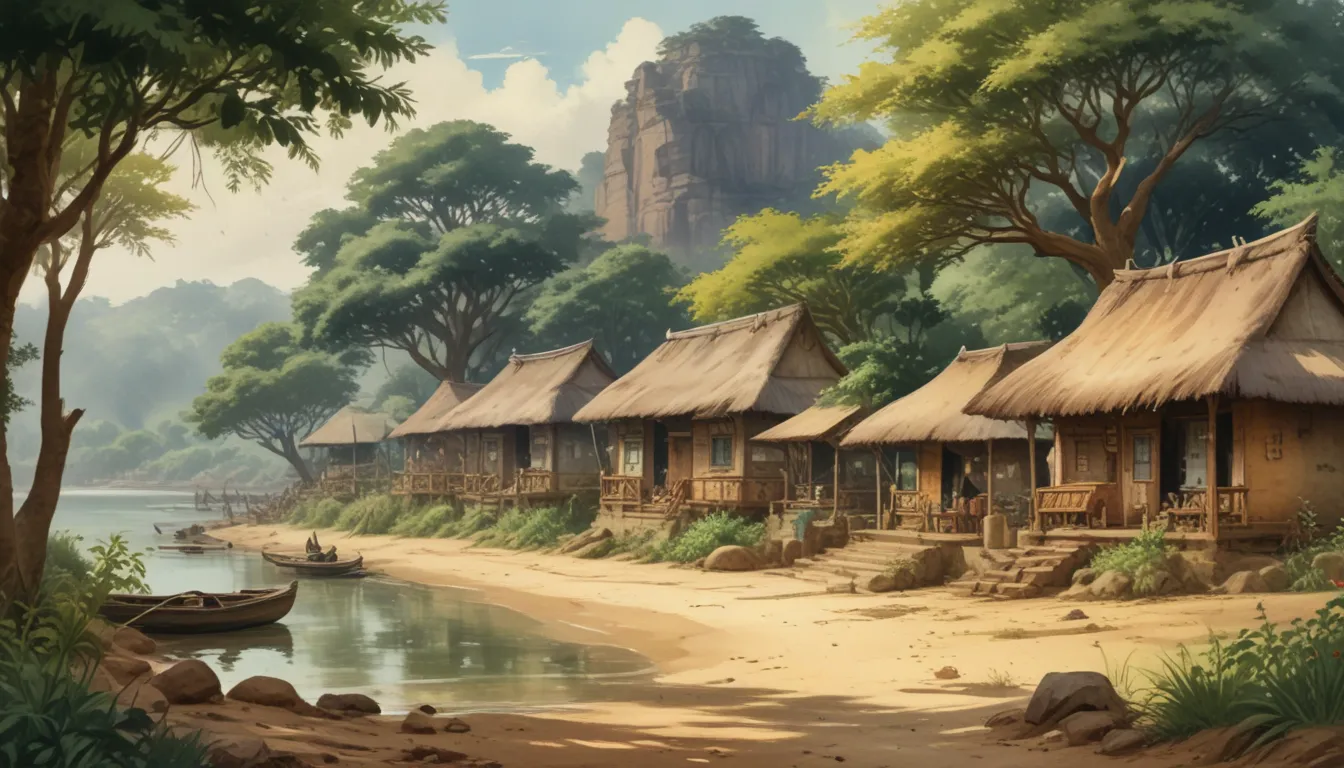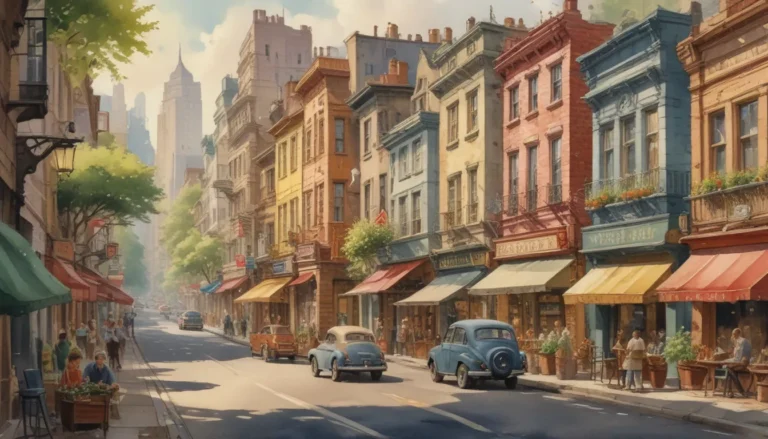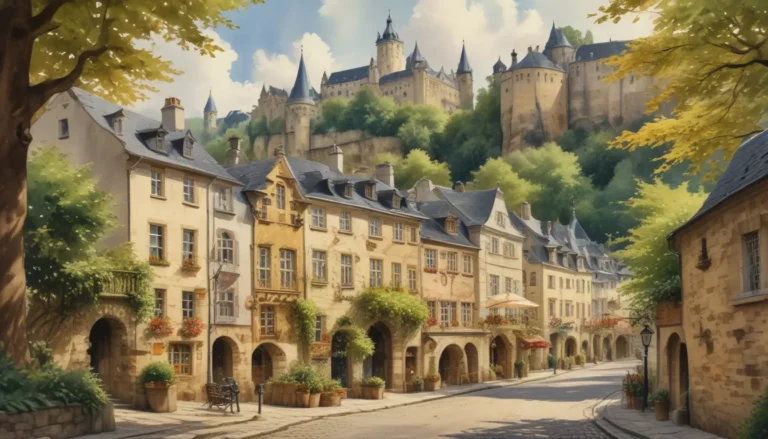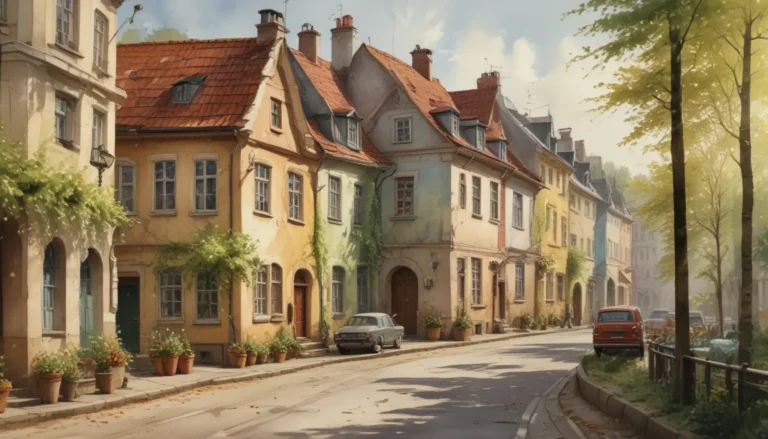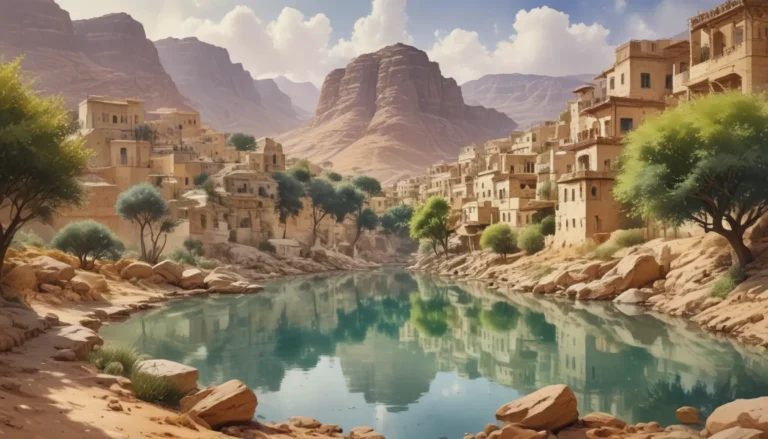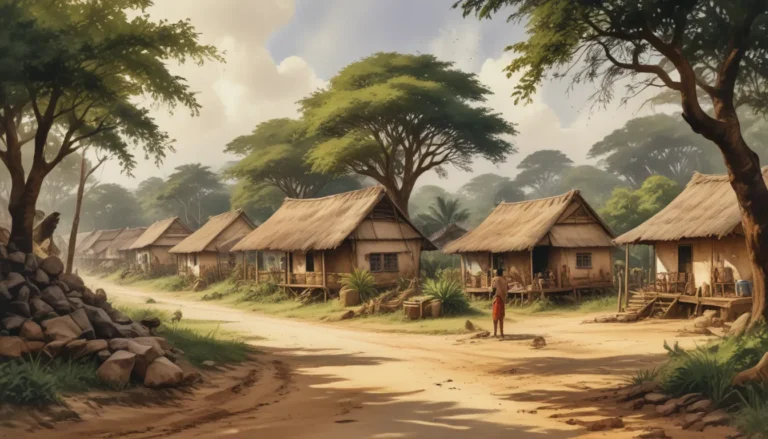The images in our articles are for illustrative purposes only and may not exactly match the content. They are intended to capture your interest and complement the text, not to replace it.
Togo, a captivating West African country, situated between Ghana and Benin, is a hidden gem waiting to be discovered. With its rich history, diverse culture, and stunning landscapes, Togo offers a unique blend of attractions that cater to every traveler’s interests. In this article, we will delve into 43 fascinating facts about Togo, covering its history, geography, culture, economy, and more. Whether you are planning a trip to this enchanting destination or simply interested in learning about different countries, join us as we uncover the hidden gems and lesser-known facts about Togo.
Key Takeaways:
- Togo, a vibrant country in West Africa, boasts rich cultural diversity, stunning landscapes, and warm hospitality. Whether you are interested in traditional music and dance or exploring UNESCO World Heritage Sites, Togo offers an immersive experience for travelers.
- With its fascinating history, diverse wildlife, and flavorful cuisine, Togo is a destination filled with hidden gems waiting to be explored. From beautiful beaches to vibrant markets, there is something for everyone in this enchanting nation.
Discovering Togo: A Unique West African Gem
Situated in West Africa and bordered by Ghana, Benin, Burkina Faso, and the Atlantic Ocean, Togo’s strategic location makes it a vibrant hub for trade and commerce in the region. The capital city of Togo is Lomé, known for its beautiful beaches, bustling markets, and vibrant nightlife. Togo gained its independence from France on April 27, 1960, and has since made significant progress in political stability and economic development.
The official language of Togo is French, serving as the primary language of administration, education, and business in the country. Togo is renowned for its rich cultural heritage and diverse ethnic groups, with over 40 different ethnic groups each showcasing unique traditions, languages, and customs. The Ewe people, one of the largest ethnic groups in Togo, are known for their vibrant festivals, traditional music and dance, and intricate hand-woven textiles.
Culture and Cuisine of Togo
Traditional handicrafts in Togo, including wood carvings, clay pottery, and basket weaving, showcase the artistic talents and cultural traditions of the Togolese people. Mount Agou, the highest peak in Togo, offers breathtaking views of the surrounding landscapes for hiking enthusiasts. Togo’s cuisine is diverse and flavorful, with staple ingredients like maize, cassava, yams, and palm nuts. Popular dishes include fufu and akoumé, offering a taste of Togolese culinary traditions.
Traditional music and dance play a significant role in Togolese culture, expressing joy and celebration through rhythmic beats and energetic movements. The Koutammakou landscape in Togo, a UNESCO World Heritage Site, features unique fortress-like mud houses known as “takienta.” Togo’s vibrant markets offer a sensory experience where locals and tourists can find a variety of goods, from fresh produce to handcrafted souvenirs.
Wildlife and Nature of Togo
Togo is home to several national parks and nature reserves, including the Fazao-Malfakassa National Park and the Kéran National Park, known for their diverse wildlife and stunning natural landscapes. The country’s tropical climate with distinct dry and rainy seasons creates a varied ecosystem supporting a wide array of plant and animal species. Togolese festivals are vibrant celebrations of the nation’s cultural diversity, providing visitors with an opportunity to experience the rich heritage of the country.
Travel and Tourism in Togo
Togo is a popular destination for eco-tourism, offering lush forests, rare wildlife, and thrilling outdoor adventures. The Tamberma Valley, another UNESCO World Heritage Site in Togo, is known for its unique architecture blending traditional houses with the natural landscape. Togo has a strong emphasis on education, with significant strides made in improving access to primary and secondary education for its citizens. The Flag of Togo, consisting of five horizontal stripes, symbolizes different aspects of the nation’s heritage and aspirations.
Vibrant Arts Scene and Festivities
Togo has a vibrant arts scene with talented artists creating paintings, sculptures, and various forms of visual arts. The country’s rich musical tradition includes genres like Afrobeat, Highlife, and Soukous, influencing artists across the African continent and beyond. Togo celebrates its Independence Day on April 27th with parades, cultural performances, and festivities. The national dish of Togo, “fufu with sauce,” offers a flavorful experience of the country’s culinary heritage.
Sights and Sounds of Togo
From the beautiful beaches along the Gulf of Guinea to the rare and endangered hippos in Togo, the country’s natural wonders captivate visitors. The traditional religion of Togo, with a strong influence of Voodoo, adds a spiritual dimension to the cultural landscape. The Kpalimé Waterfalls, a natural wonder attracting visitors from far and wide, offer a picturesque setting surrounded by lush greenery. Togo’s sacred forests, revered by local communities, serve as sanctuaries for various plant and animal species.
Conclusion: Uncovering the Wonders of Togo
Togo, with its rich history, vibrant culture, and stunning natural beauty, offers travelers a truly immersive experience in West Africa. Whether exploring bustling markets, hiking through national parks, or immersing in voodoo traditions, Togo promises an unforgettable journey. With an emerging tourism industry and commitment to sustainable development, Togo is poised to become a top destination in the region. Pack your bags and uncover the hidden gems of this captivating country.
FAQs: Exploring Togo’s Rich Heritage
-
What is the capital of Togo?
The capital of Togo is Lomé, known for its beautiful beaches and vibrant markets. -
What is the official language of Togo?
The official language of Togo is French, reflecting the country’s colonial history. -
What are some popular tourist attractions in Togo?
Popular attractions in Togo include beautiful beaches, traditional villages, hiking trails, and vibrant markets. -
Is Togo safe for travelers?
While generally safe, travelers should take precautions and stay informed about the current situation. -
What is the climate like in Togo?
Togo has a tropical climate with distinct dry and rainy seasons, offering pleasant weather year-round. -
What is the currency of Togo?
The currency of Togo is the West African CFA franc (XOF), commonly used for transactions in the country. -
Do I need a visa to visit Togo?
Most visitors to Togo require a visa, so it’s essential to check the requirements and apply in advance. -
What are some traditional dishes in Togo?
Traditional dishes in Togo include fufu, akume, grilled fish, and various stews and sauces. -
Can I drink tap water in Togo?
It is recommended to stick to bottled water in Togo to avoid any health risks. -
What is the best time to visit Togo?
The best time to visit Togo is during the dry season from November to March for optimal weather conditions.
Togo’s captivating culture, history, and natural wonders make it a truly fascinating destination. Whether you’re exploring its savory cuisine, unique traditions, or vibrant arts scene, Togo offers a wealth of experiences for every traveler. Embrace the warm hospitality of the Togolese people as you embark on an unforgettable journey through this remarkable country. Pack your bags and get ready to uncover the wonders of Togo’s rich heritage.
